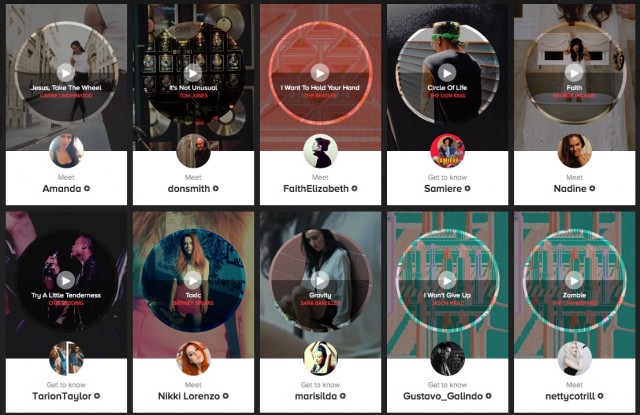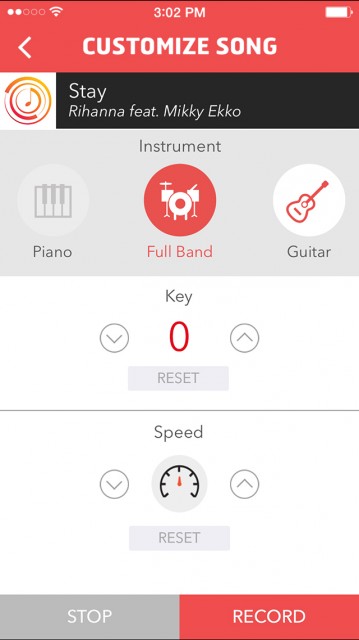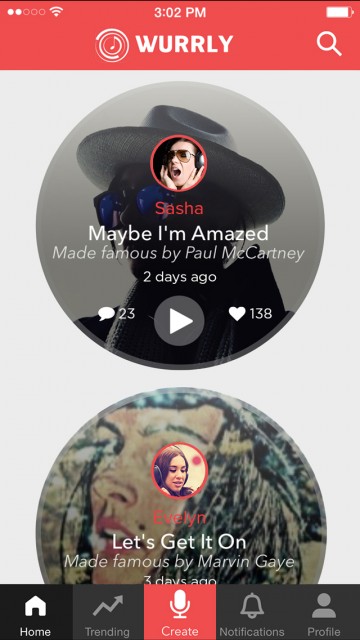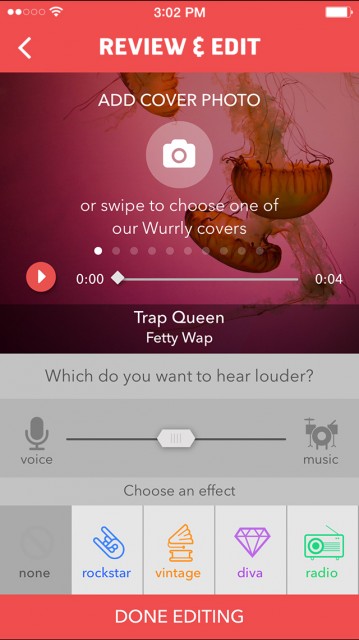The music industry is fantastic at hindsight. We’ve obsessed over the spread of online piracy, the death of the CD, then the impact of streams. But every measure of the business model is somehow framed around acquiring records. And it’s about passive consumption.
We have to remember, though, that passive consumption is itself really the outlier. Until the dawn of recording, music only existed when you played it. Our current copyright and licensing system was first structured around sheet music. And that world never went away. Precise recordings can give you the experience of listening, but no technology can give you the feeling of singing.
So it’s time to start thinking about business models that involve active participation. We saw that earlier this month with label Ninja Tune embracing remixing in an app and Launchpad sound packs. Here’s a more conventional approach.
Wurrly is an app for recording covers of popular songs. It starts with a song store (and links to the originals on iTunes), but instead of tapping to download, you tap to sing. Choose a pre-made accompaniment (full band, piano, or guitar), set the key and tempo, and record. The cleverest part of the app is probably the interface for adding finishing touches: you get a simple fader for mixing and Instagram-style effects. (I’m sure we’ll keep hearing about an “Instagram for music” or “Instagram for sound” until someone really nails it.)
Of course, this is all paired with social sharing features and featured songs. I’m impressed, some of the recordings are pretty good – there are some talented singers, not just karaoke fare. I find the arrangements themselves to be a little dry; I think the app would benefit from original stems coming from the artists.
And yes, theoretically, this sort of thing could be a revenue stream – though again rates set for statutory licensing are key. A spokesperson for the developer tells CDM:
We have deals with all of the majors and we have blanket licenses on their content. As you know, songs these days can have multiple co-publishers, so we go directly to the stakeholders to get permission. We pay them royalties based on the seconds of usage in the app, quarterly. We also have encryption within the app so that users cannot manipulate it.
Think of this as the pop song / singer analog to Native Instruments’ Stems, and you begin to see where the landscape might shift.
It’s tough to tell what will be a hit and what won’t, in apps as in music itself. But looking beyond just acquiring music directly is wise. The beauty of the shift from devices like the iPod or Walkman to those like the iPhone or tablet is that it’s far easier to engage the user in a creative, active experience. And just as the phone made people feel better about taking more photos by making them look better, there’s no question that making people happy with the way they sound is a key motivation for encouraging musicianship.
Of course, in the past I made this prediction about music games, and that trend lost some steam. But I think we’re still in early days. Watch this space.



